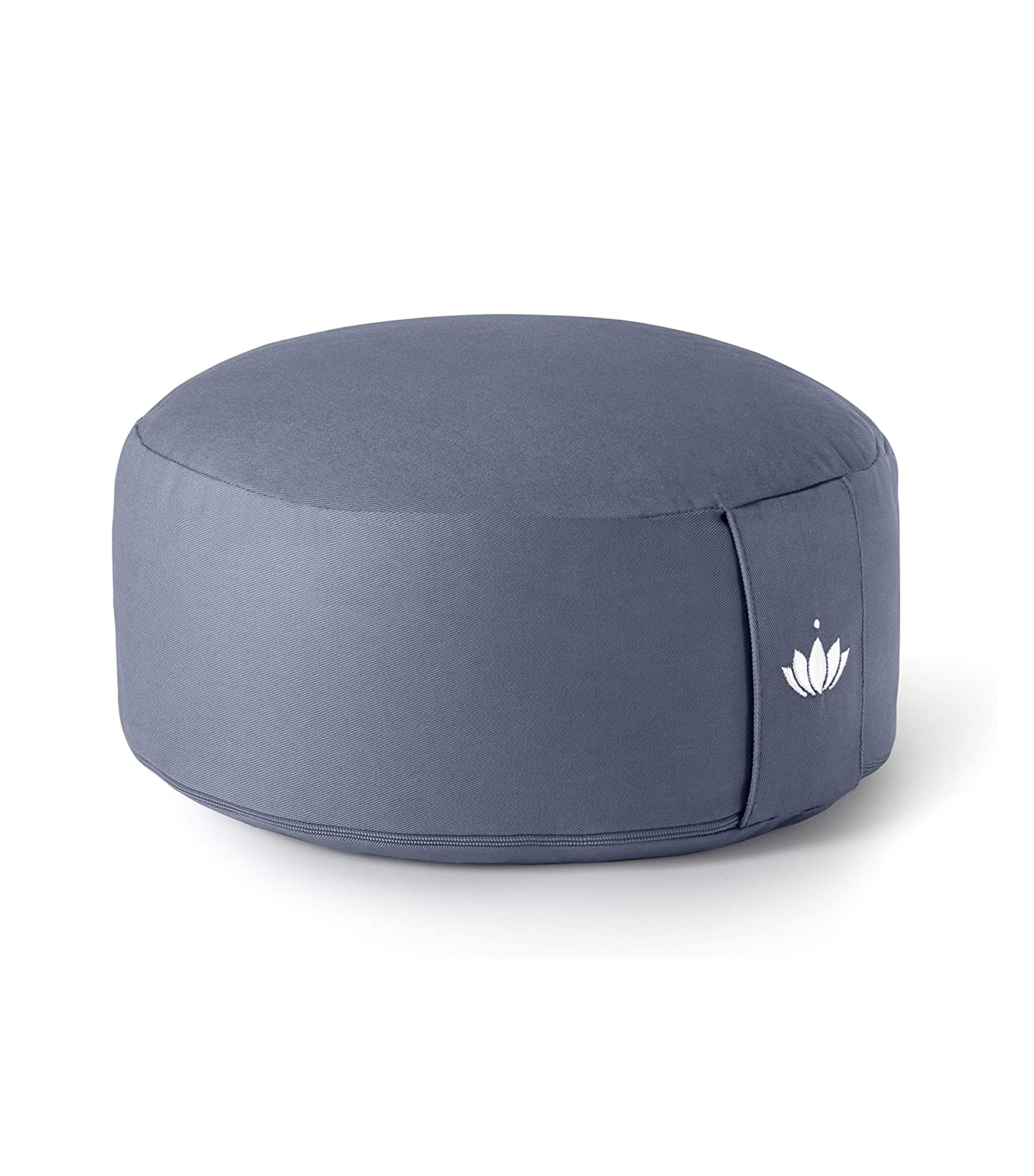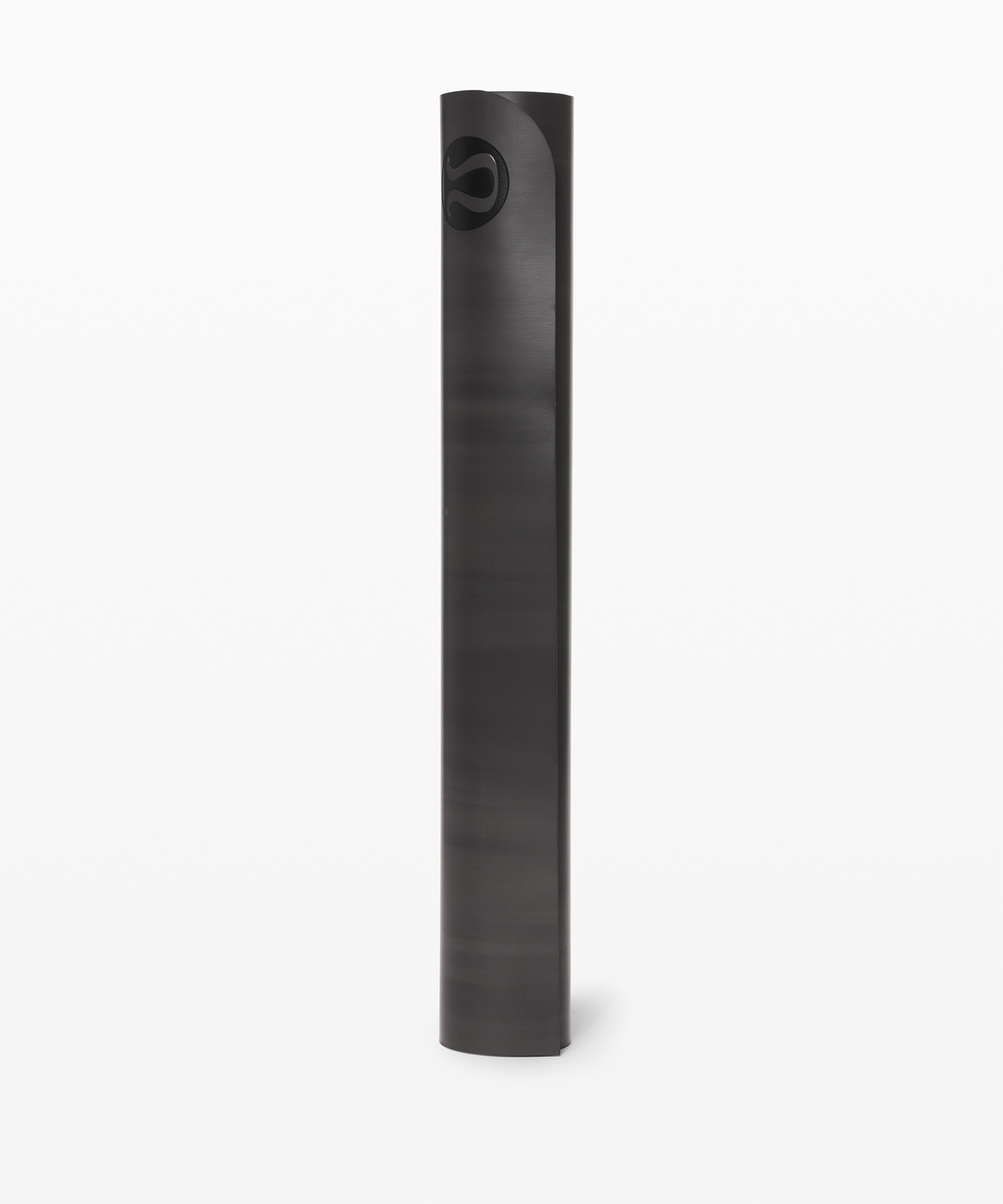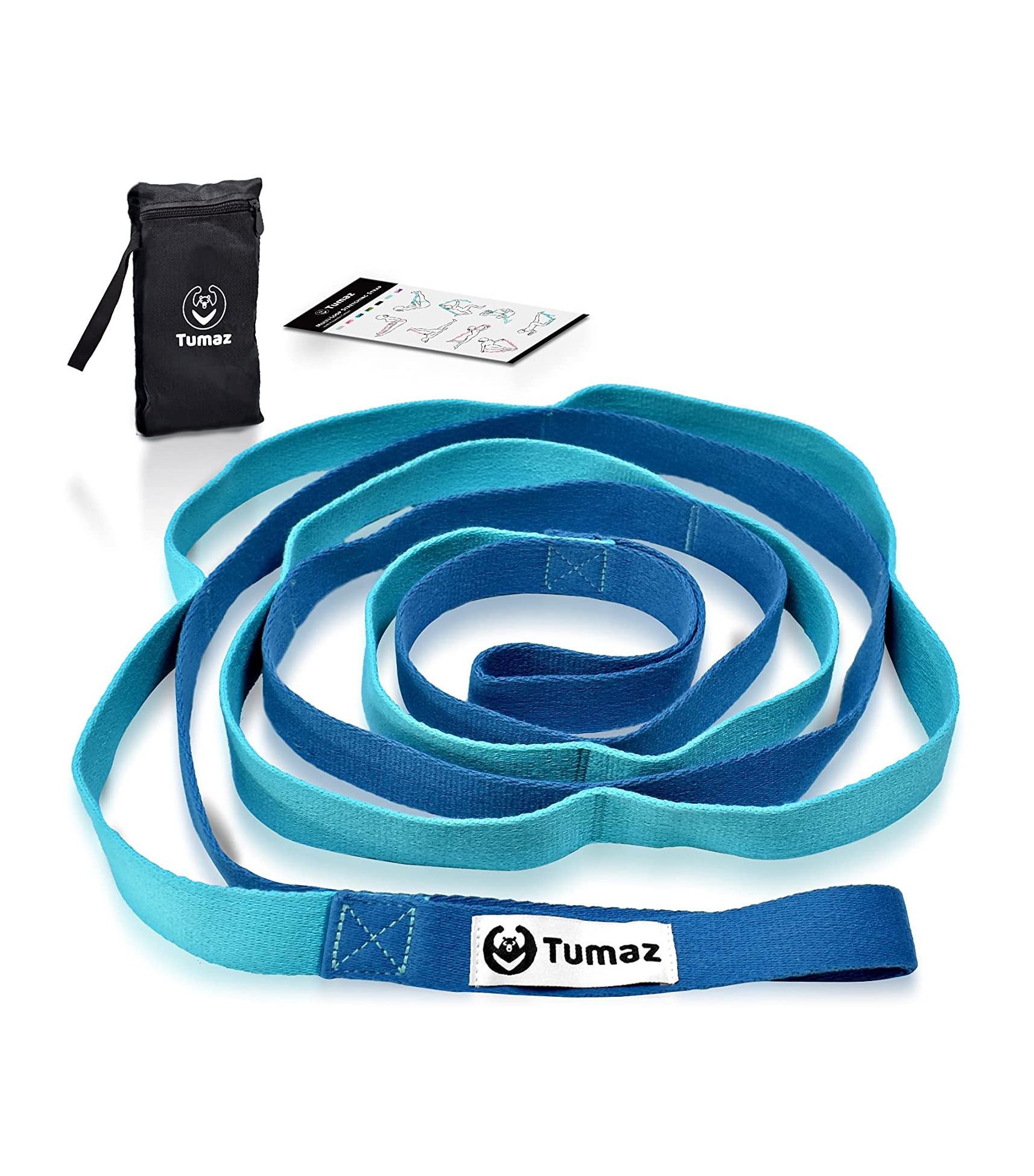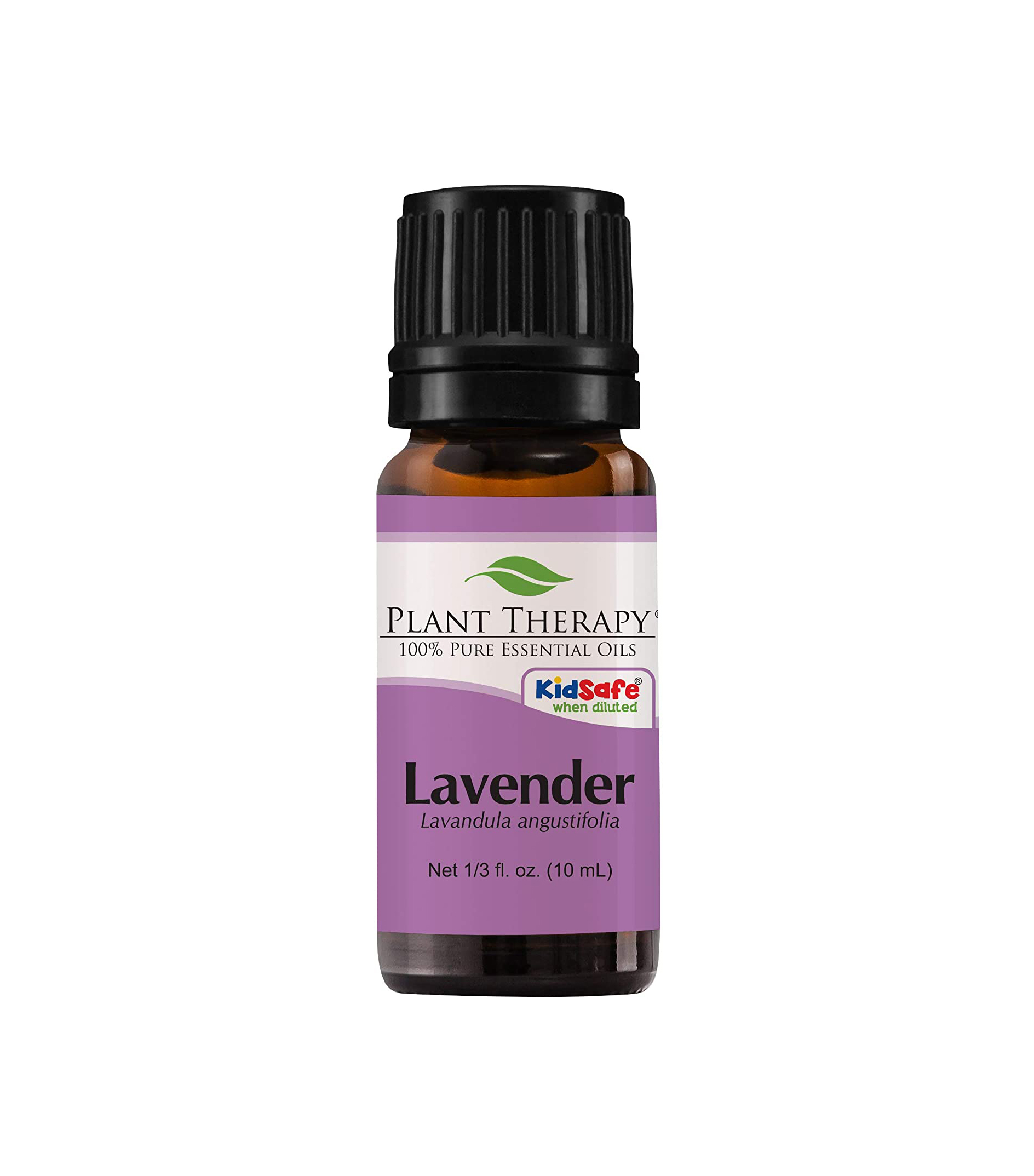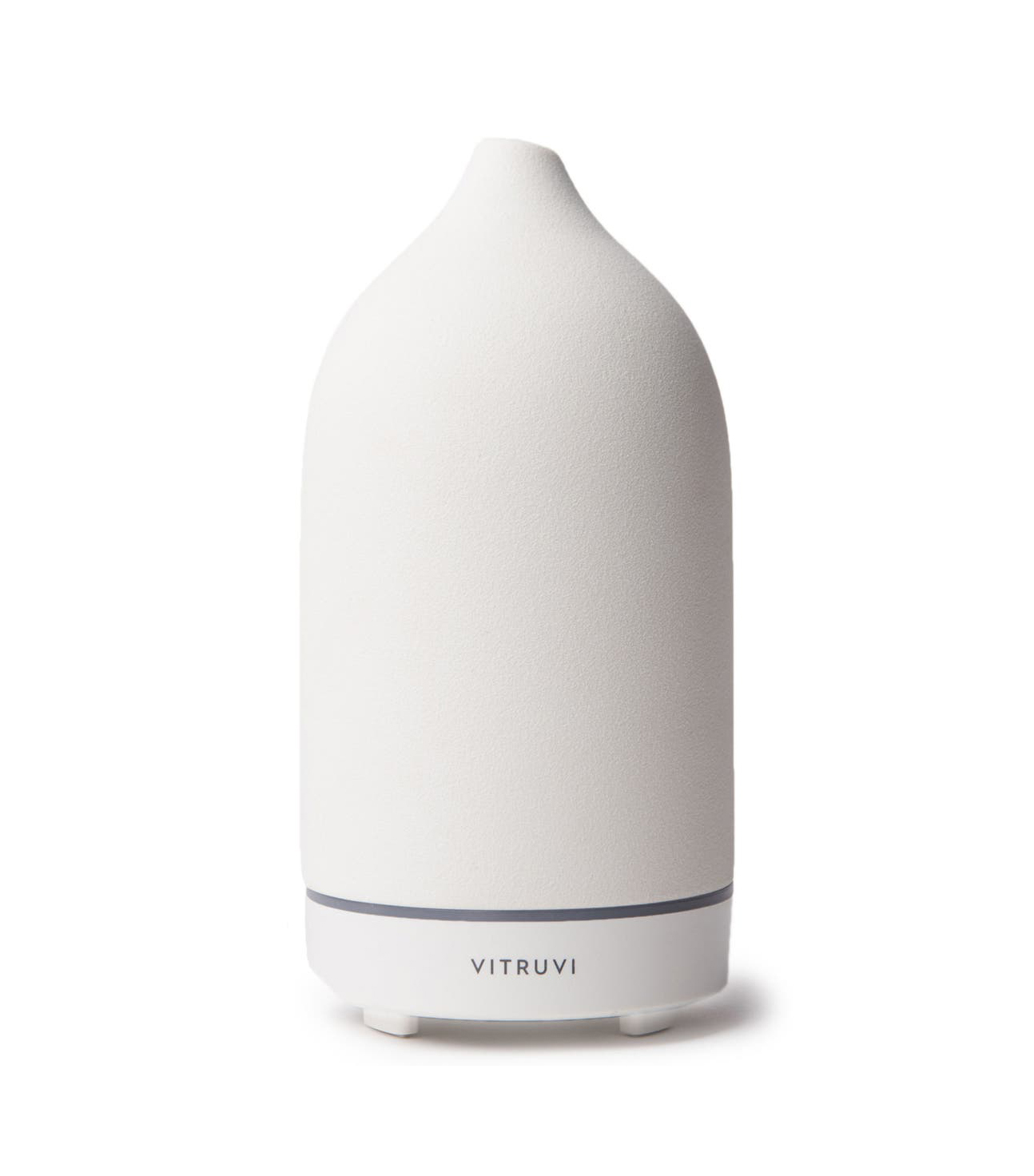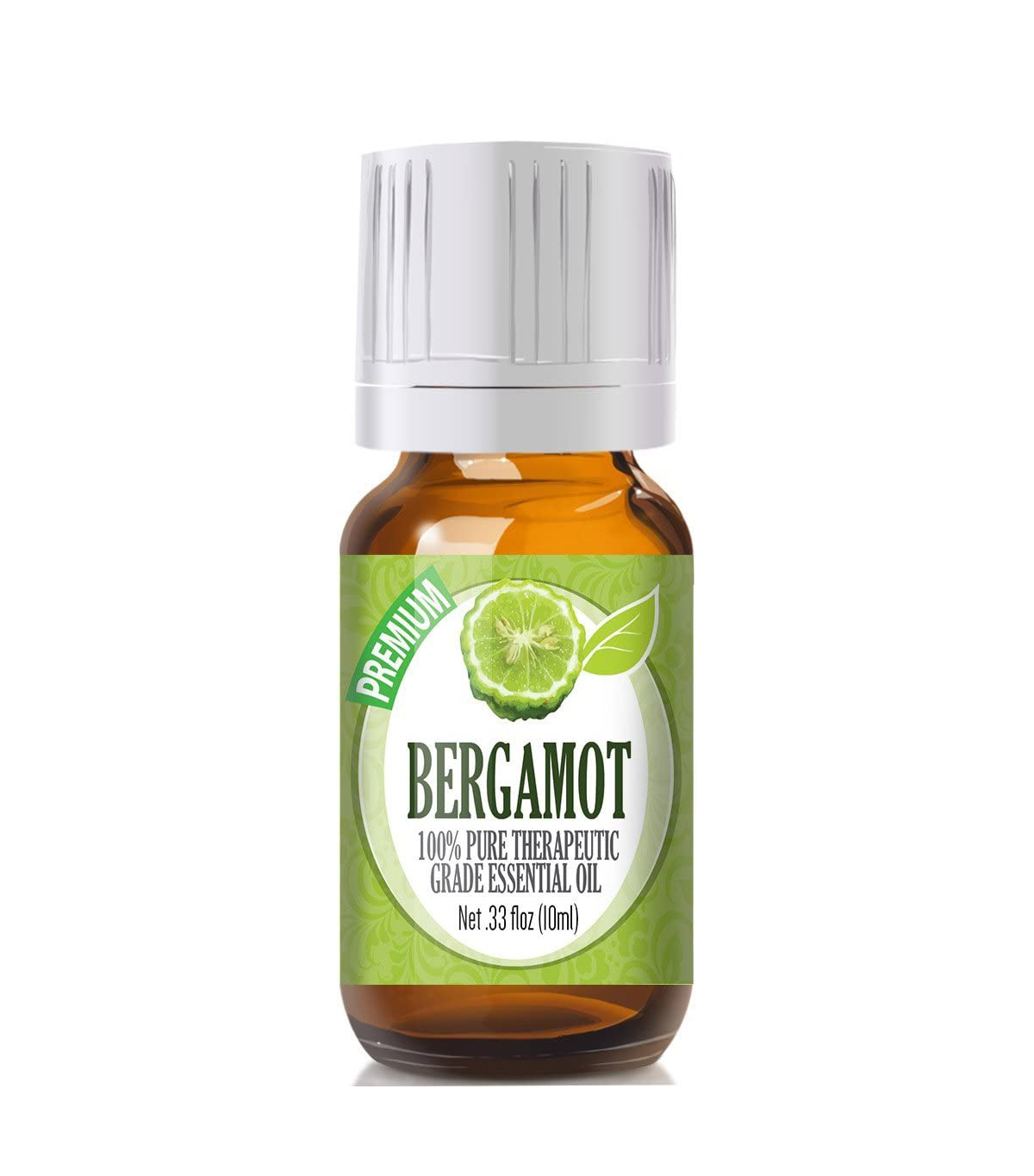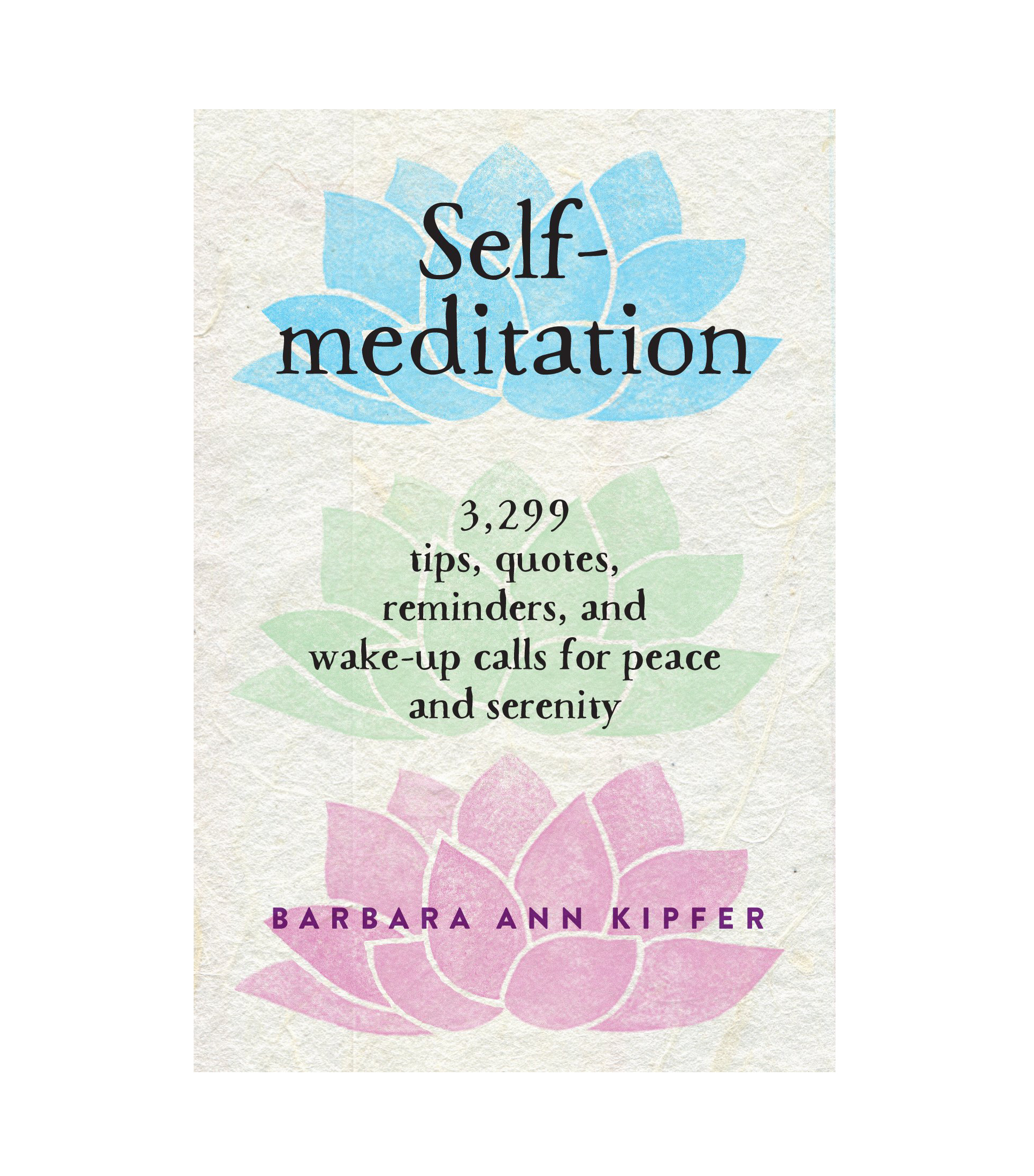The Mindfulness Tips to Help You Keep Your Cool Over the Holidays

Maybe you're reading this while trying to put out a kitchen disaster before a big holiday meal. Maybe you're under a pile of wrapping paper wondering how you're going to get everything to look Instagram-perfect. You could be working late at the office trying to finish that year-end report for your boss. Or maybe you're lying in bed, so tired, but unable to catch a wink of sleep. We could go on and on with more scenarios, but we'd be here for a long time.
Whatever the case, the whole gist of this is to say that the holidays can be batshit crazy. When your stress level is at an all-time high and you're being pulled in so many different directions by your family, friends, boss, and co-workers, your first instinct might be to scream and rip your hair out (or just run away to a far-flung destination). Both of those things aren't exactly feasible (well, fleeing the country to a tropical island sounds pretty nice), but there are some other ways to cope with huge amounts of holiday stress that don't involve you losing your hair and voice or running away.

One thing that can really help is learning how to change your mindset and using some techniques that will help you stay calm and take a step back when things get tough. We asked mindfulness and meditation experts for some quick and doable techniques to employ this holiday season. Read on for their tips and try them out—and even better, these aren't just specifically for the holidays; they can be used year-round, too.
1. Breathe
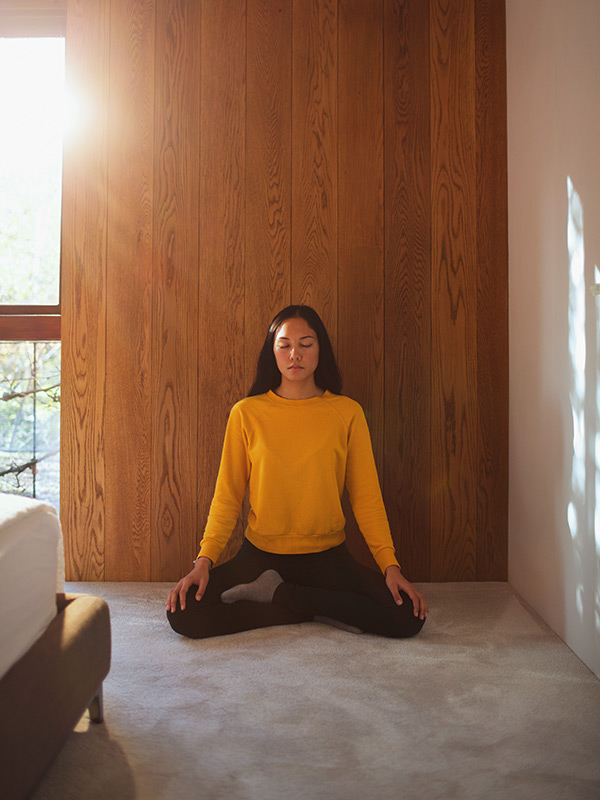
When we're so caught up in something, it's easy to forget that just a deep breath can really help. "Focusing on our breath can have a profound effect on our state of mind," says Megan Jones Bell, PsyD, Headspace's chief science officer. "Try taking five deep breaths whenever you are feeling stressed or anxious. Headspace even has one-minute mini breathing exercises so you can practice it anywhere at any time. Deep breathing creates a different physiological response in our bodies so you can use it to your advantage to help you reset."
Suze Yalof Schwartz, CEO and founder of Unplug Meditation, recommends another breathing exercise, which is called the 16-second breath (or, as some police officers who use it call it, combat breathing). "All you do is when you notice your mind is very busy or you're feeling activated and stressed, you just stop what you're doing," she explains. "Step one: Breathe in through your nose for four seconds. Step two: Hold your breath for four seconds. Step three: Audibly exhale out for four seconds. And step four: Hold for four seconds."
Whichever breathing method or exercise you use, just the simple act of being mindful of your breath and taking the time to do so can have a calming effect.
2. Take Care of Others
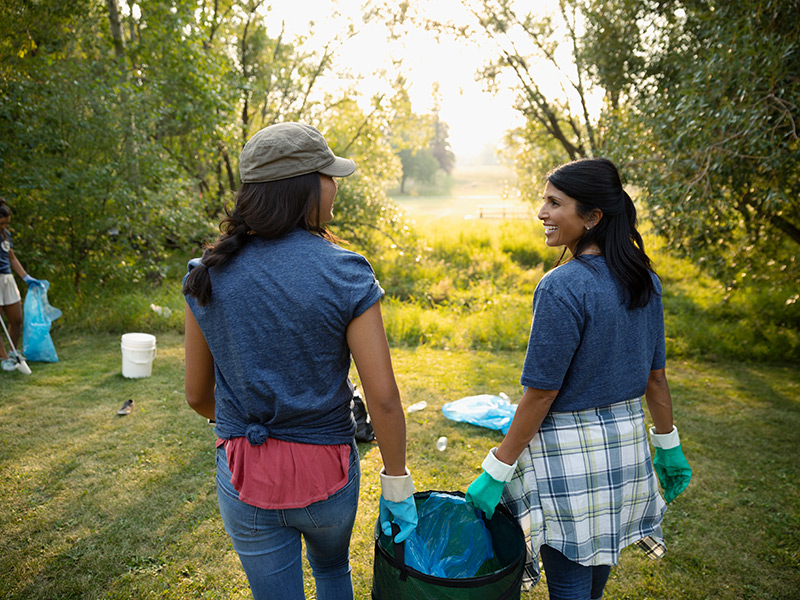
Okay, you might be thinking, I already have so much to do. How can I possibly add something more? But Rachel Webb, executive director of Three Jewels and content consultant for Wave, an at-home music meditation device, says this can help. "The best way to deal with stress isn't to spend time paying extra attention to the feelings of anxiety, fear, or whatever it is that's arising in that moment—it's to take our minds off of those emotions (they will pass either way) and to actually help other people out and be there for others," she says. "When we take care of other people, we cut the cycle of self-directed rumination, and we begin to create new pathways in our minds. Taking care of others removes their stress and shows our mind evidence of a stress-free world."
This might be something like helping a colleague with her workload if she's feeling overwhelmed, doing chores for a grandparent around the house, or volunteering at a soup kitchen. When you're doing good, you can feel good.
3. Meditate
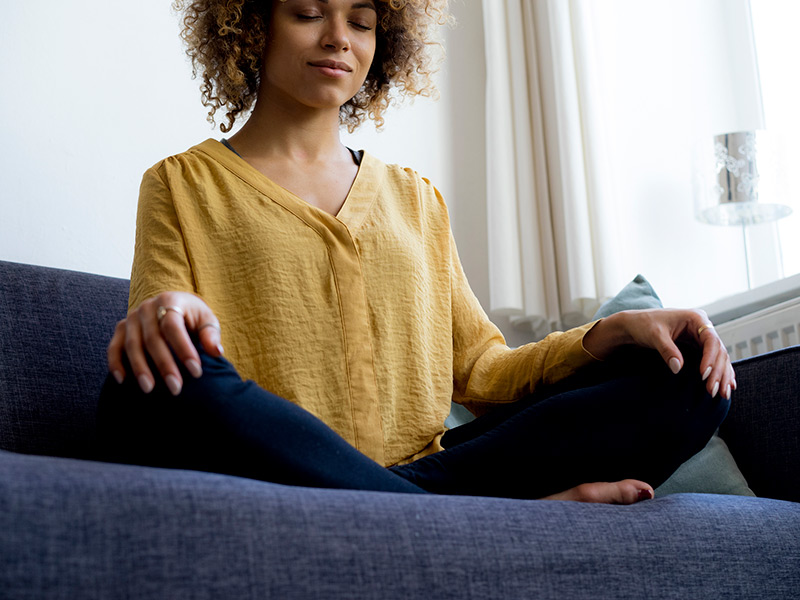
Well, this one's a no-brainer and recommended by all three of our experts. There are some different ways to meditate that have varied effects and purposes. For instance, Schwartz says there's a meditation on the Unplug app that's specifically made for social anxiety during the holidays. There are so many options out there, so you can pick and choose from a variety of options, whether it's an app or a simple moment of mindfulness.
"Through meditation, we can develop the skills to sit with our mind as it is, rather than try and change external forces around us," Bell says. "It also helps us be compassionate to ourselves and to others, as loneliness and stress are very common experiences for everyone."
4. Move
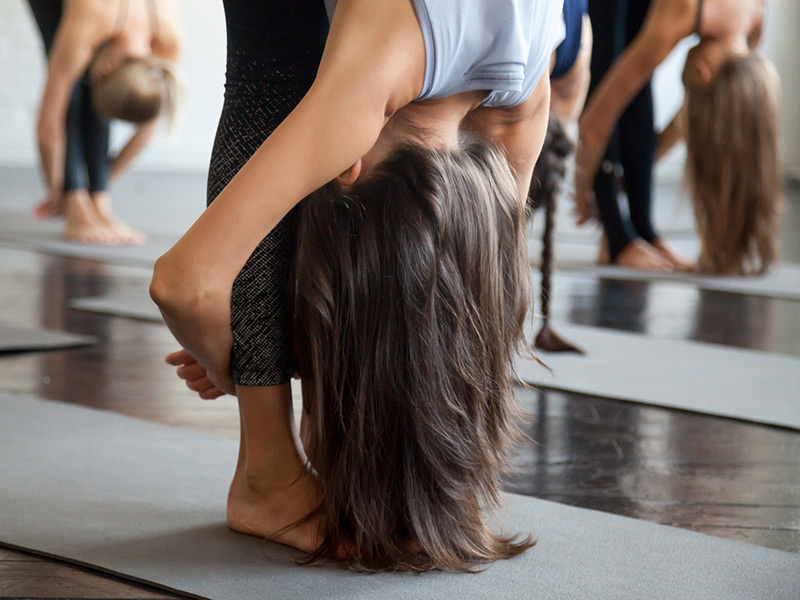
This goes for both your body and mind. "Yoga was designed for mental health by the yogis thousands of years ago. It's important to move the body," Webb says. "It's just as essential to move the mind from thought patterns around exhaustion, irritation, etc., into something much more enjoyable and healthy."
Another option is to just go for a walk around the block or do some stretching. Stopping whatever you're doing to get up or move to another location (even if it's a few feet away) can make a big difference.
5. Steal a Moment for Yourself

"Don't take a moment for yourself—steal a moment for yourself," Schwartz suggests. "Self-care is not selfish because when you feel good, it's not just you you're affecting; it's every person you come in contact with."
And what you do for yourself really depends on your own personal preference. "Taking a moment to yourself looks different for everyone, but we always encourage you to approach that time with mindfulness," Bell says. "Mindfulness can also be incorporated into every aspect of life including activities that you do around the holidays. For example, you can also incorporate mindfulness into baking by placing awareness on the smells, textures, and colors of the ingredients to gain a greater sense of appreciation for where your food comes from."
6. Use the Power of Smell
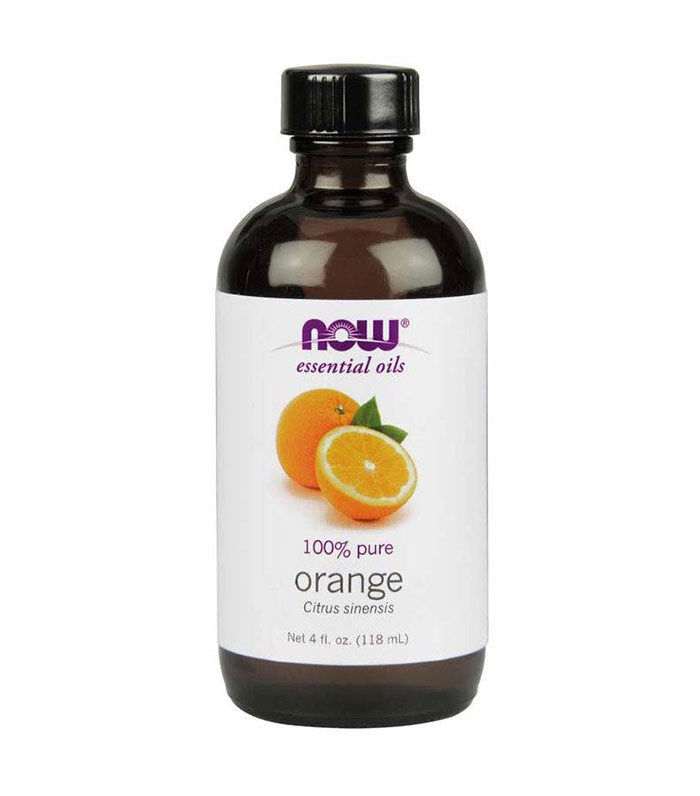
Certain smells can conjure up warm feelings or provide comfort. Schwartz says that she slices oranges and smells them since they're an essential oil of happiness and can put you in a good mood. You can also try other essential oils that are found to help with stress relief and anxiety, like lavender, ylang-ylang, and bergamot.
7. Unplug
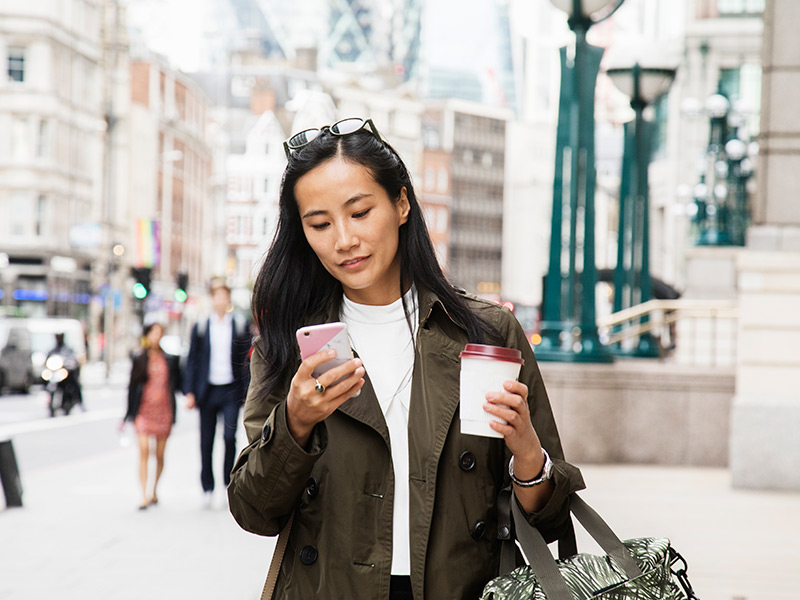
"Find time throughout your day to unplug from your phone and tune into the people around you and yourself," Bell suggests. "Holiday stress can often be born out of having certain expectations and desires. Taking time away from technology can allow us the space to reconnect with our loved ones around us."
8. Listen and Connect With Others

This goes hand in hand with helping others, and it might even help someone who is also experiencing anxiety during the holidays. "Everyone experiences the holidays differently, and we may not always know what is going on in someone's mind," Bell says. "Thus, awareness is key. Listening actively when others talk, noticing body language, and taking the extra step to check in with others can create the space for others to get the support they may need and for which they might not know how to ask."
Finding someone else who feels the same way you do during this time can make things better, too, Webb adds. That's because you can work together to help each other overcome whatever obstacles there are.
9. Do Some Intention Setting

"It can also be helpful to write down your intentions for the holiday season," Bell says. "Perhaps you are seeing friends and family that you typically do not get to see due to scheduling. Placing our focus on a positive intention will help reframe any negative thoughts that may arise. Who knows, maybe you can even cut a family member a little slack this holiday season and save yourself some stress in the process."
10. Go Easy on Yourself

We can be so hard on ourselves at all times, but this season brings out our biggest inner critic for some reason. "It's always important to practice self-compassion, especially during this time of year," Bell explains. "It's a natural time for reflection, which can stir up mixed emotions. Holidays usually come with more emotional charge—both positive and challenging. Practicing mindfulness can help bring more awareness to the specific feelings that may arise, such as loneliness or aggression. If you can allow those feelings to come and go without judgment, then you can create space for more acceptance."
11. Reframe Your Mindset

It's not surprising that picturing the best outcome instead of the worst is better for your stress and anxiety, especially in social situations. That's where meditation can be handy. "Meditation creates a self-fulfilling prophecy," Webb says. "So, spend time imagining that things go really well for you socially, free of anxiety. And while you're at it, dedicate the meditation to the thousands of other humans who struggle this way!" This can help you feel empowered and less alone.
Schwartz agrees and suggests visualizing who you'll see at the gathering and who you want to talk to. Then, imagine yourself having a great conversation with that person and even meeting a stranger who's fascinating. "And make a conscious decision to really pay close attention to your own energy," she adds. "A lot of times, you walk into a room and you feel everybody's energy and it doesn't feel comfortable, but when you're actually walking into the room and consciously trying to make people feel good, you actually feel good."
12. Do Something for Yourself

Do something that makes you happy or relaxed before and after an event that you're worried about. This is especially helpful for those who are more introverted and are overwhelmed with all the socializing this time of year. It will help you rebalance. Bell says even a short 10-minute walk or meditation can help you build up the energy before or after having to be "on" for others.

Whatever mindfulness or coping techniques you take with you for this season, remember that the main thing is to take it easy on yourself. Let yourself feel all the feelings, but try not to dwell on it too much, and focus on the positives. It's also supposed to be a joyful time of year, after all.
Next up: 8 Cringeworthy Questions You'll Face This Holiday Season—and How to Respond
This article was originally published at an earlier date and has since been updated.
This article is provided for informational purposes only and is not intended to be used in the place of advice of your physician or other medical professionals. You should always consult with your doctor or healthcare provider first with any health-related questions.
Sarah is lifestyle writer and editor with over 10 years of experience covering health and wellness, interior design, food, beauty, and tech. Born and raised in Los Angeles, she attended New York University and lived in New York for 12 years before returning to L.A. in 2019. In addition to her work atBest Knockoff Luxury Clothing , she held editor roles at Apartment Therapy, Real Simple, House Beautiful, Elle Decor, and The Bump (sister site of The Knot). She has a passion for health and wellness, but she especially loves writing about mental health. Her self-care routine consists of five things: a good workout, “me” time on the regular, an intriguing book/podcast/playlist to unwind after a long day, naps, and decorating her home.
